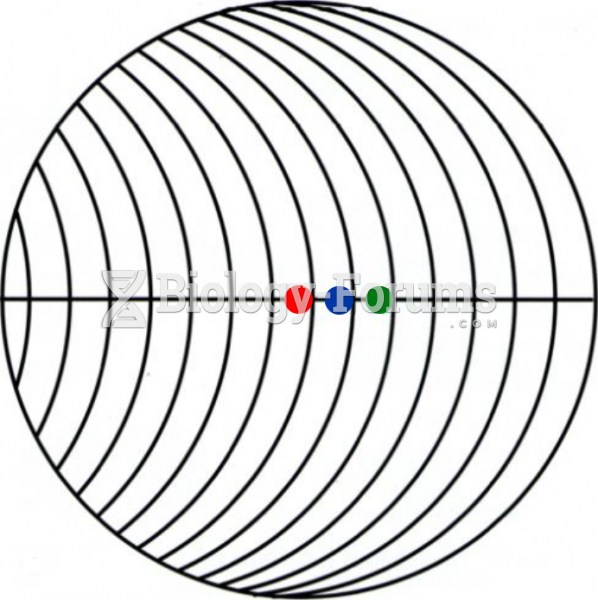|
|
|
Bisphosphonates were first developed in the nineteenth century. They were first investigated for use in disorders of bone metabolism in the 1960s. They are now used clinically for the treatment of osteoporosis, Paget's disease, bone metastasis, multiple myeloma, and other conditions that feature bone fragility.
Intradermal injections are somewhat difficult to correctly administer because the skin layers are so thin that it is easy to accidentally punch through to the deeper subcutaneous layer.
Women are 50% to 75% more likely than men to experience an adverse drug reaction.
The effects of organophosphate poisoning are referred to by using the abbreviations “SLUD” or “SLUDGE,” It stands for: salivation, lacrimation, urination, defecation, GI upset, and emesis.
There are more bacteria in your mouth than there are people in the world.
 Percentage of Foreign-Born Whites and Native Whites of Foreign or Mixed Parentage in Total Populatio
Percentage of Foreign-Born Whites and Native Whites of Foreign or Mixed Parentage in Total Populatio
 Because of immature visual-motor coordination, young children find it hard to throw and catch small ...
Because of immature visual-motor coordination, young children find it hard to throw and catch small ...





